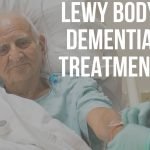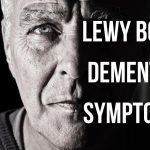To get a proper diagnosis and treatment for Lewy body dementia (LBD), it is important to consult a Lewy body dementia specialist.
LBD describes a kind of progressive dementia that often leads to a decline in thinking.
The main reason it is important to work with a specialist is that diagnosing Lewy body dementia is usually challenging.
Some of the early LBD symptoms are similar to the warning signs found in other brain illnesses like Alzheimer’s disease, Parkinson’s disease, or psychiatric diseases.
It is one of the primary reasons LBD specialists are needed because they possess special skills that they can use to properly diagnose Lewy body dementia.
LBD remains a “clinical diagnosis” implying that it represents a medic’s best professional judgment about the reason why a person is going through certain symptoms.
Note: Some other names for LBD are Lewy body dementia, cortical Lewy body disease, diffuse Lewy body disease.
Have a look at some of the specialists that can help with LBD diagnosis.
Contents
Specialists who Can Diagnose Lewy Body Dementia

When you first notice any physical, cognitive, behavioral or emotional problems, your first stop will probably be at your doctor’s office.
If your physician is not too familiar with LBD, they may refer you to a Lewy body dementia specialist.
They are a few professionals you can consult including neurologists who specialize in brain disorders as well as those of the nervous system implying they have what it takes to tell if a person has LBD or not.
Other professionals include geriatricians, geriatric psychiatrists, and neuropsychologists who have skills that can diagnose this dementia type.
Other than your doctor’s referrals, you can also use Lewy Body Dementia Association Research Centres (a reputable research network) to find specialists who are knowledgeable about LBD.
Lewy Body Dementia Tests
The specialists usually conduct several tests before coming up with a diagnosis like:
Brain Imaging
Magnetic resonance imaging and computed tomography can be used to detect structural abnormalities in the brain or brain shrinkage which can help rule out other possible causes of movement and dementia symptoms.
Medical examination and history
Doctors will always review a person’s medical history thoroughly to try and figure out what is going on.
This includes looking into current and previous illnesses, checking out the medications and alternative treatments a person is on as well asking about all the symptoms that the person has.
They will also conduct tests of memory and movement in a bid to collect valuable details they can use for the diagnosis process.
Neurological tests
These are tests medics will perform to assess memory as well as other cognitive functions to help recognize the areas of the brain that are affected.
Medical tests
Laboratory studies are also included in the diagnosis process to rule out other medical conditions, vitamin, or hormonal deficiencies that may be causing the symptoms a person is experiencing.
Heart tests
Some specialists may also see it fit to order myocardial scintigraphy a heart test that checks blood flow to the heart which can be one of the LBD symptoms.
Worth noting is that currently, no medical tests or brain tests can affirmatively diagnose Lewy body dementia. It is only possible to diagnose LBD through brain autopsy after a person dies.
Scientists are, however, working hard to find more effective solutions to accurately diagnose Lewy body dementia in a living brain.
Lewy Body Dementia Treatment Options

To date, there is still no cure for LBD. A Lewy body dementia specialist may, nonetheless, offer guidance on how to manage the illness.
Some of the symptoms may respond positively to treatment for some time. Treatment plans normally involve a combination of:
Medicines

Doctors may prescribe several drugs to treat some LBD symptoms. It is advisable that a ill individual refrains from self-medicating because some medications are known to make the symptoms worse.
Working with a knowledgeable health professional is essential because they can switch up the drugs in case of severe side-effects.
They can also know how to pair up drugs to avoid medicine interactions. The drugs a person is given depends on the symptoms they are going through.
For instance, a doctor may recommend Exelon, Razadyne, or Namzaric for memory and thinking problems.
Sinemet may help with stiffness, slowness, and tremor while Klonopin can be useful for sleep disturbances and so forth.
Different Types of Therapies

After a positive diagnosis for LBD from a Lewy body dementia specialist, a person may have to work with a team of professional therapists on different highly effective therapies, depending on the symptoms they are experiencing such as:
Speech therapists
The experts can assist with voice projection, low voice volume, and swallowing challenges.
Physical therapists
They can help with movement issues through flexibility, strengthening, and cardiovascular exercises as well as general physical fitness programs. Some individuals with LBD might also need gait training
Expressive art or music therapists
The professionals help weak persons engage in fun and meaningful activities, including music and art therapies, intending to improve well-being and reduce symptoms like anxiety.
Aromatherapy
Aromatherapy can help to soothe and calm a person especially when they are agitated.
Occupational therapists
The experts will walk with the persons with Lewy body dementia trying to identify easier ways to conduct daily activities like bathing, grooming, and eating to help them retain independence for the longest possible time.
Do not forget to read all the various benefits occupational therapy has on a person with dementia.
Pet therapy
Pets can not only offer companionship, but they can also help boost mood.
Counseling

Many people with LBD together with their families need professional help when it comes to processing the changes that will come about after a positive diagnosis.
Professional mental health counselors may come in handy to help people learn how to manage difficult behaviors and emotions. They can also help families and loved ones make sober plans for the future.
Other than counseling, persons with the illness and their relatives and friends can also join a support group where they can get helpful resources they can use to deal with their “new normal.”
Other types of treatment that a Lewy body dementia specialist may vouch for include lifestyle interventions where the suffering person has to eat healthier, get physically active, and remain socially active.
Making adjustments to the living environment, social support, and the use of equipment that make daily life easier are also recommended.







